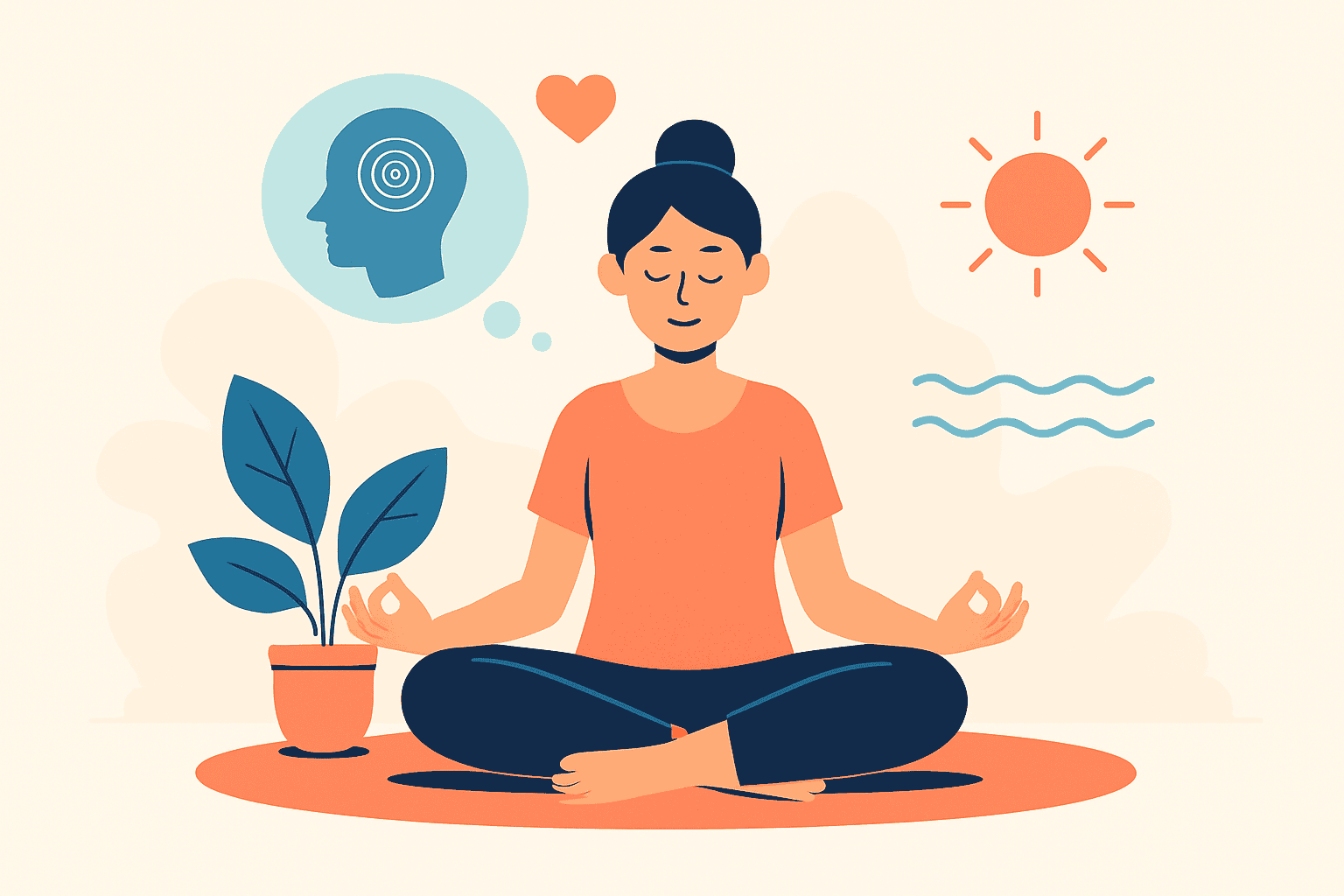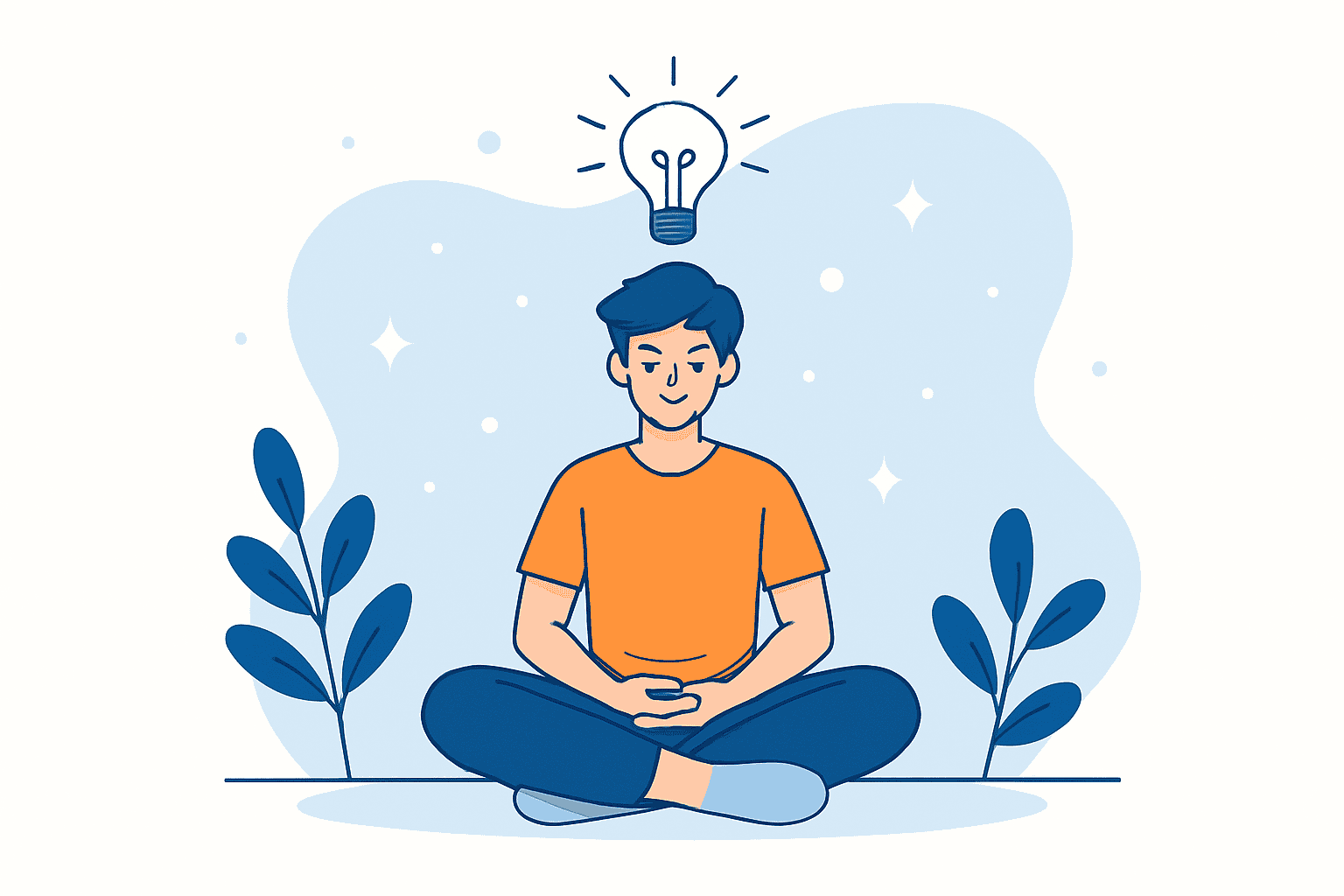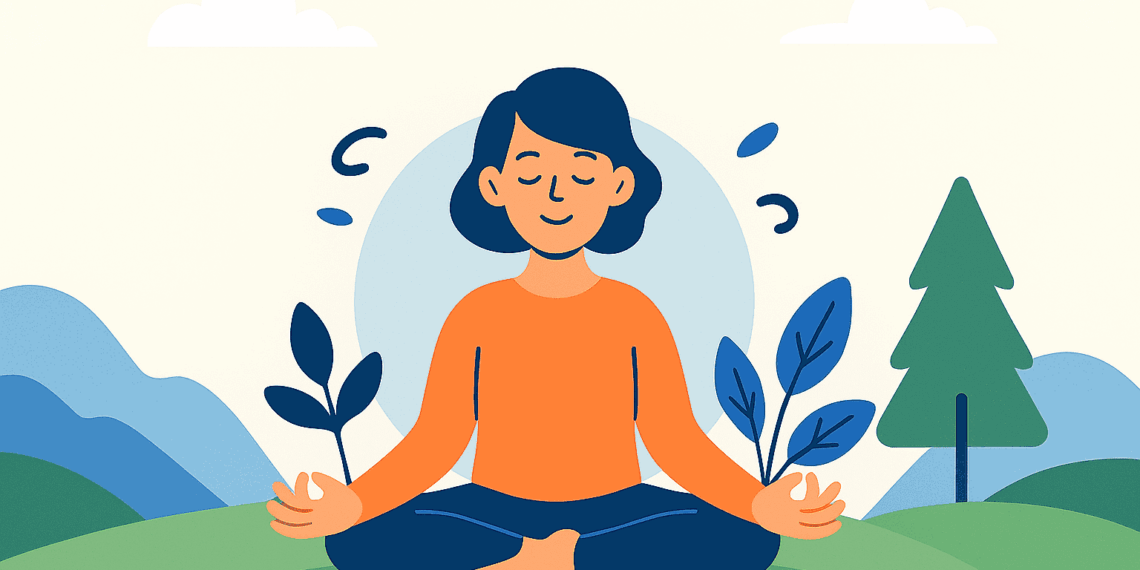Contents
The Power of Mindfulness: A Guide to Daily Practice
In today’s fast-paced world, it’s easy to get caught up in the daily hustle and bustle. Our minds are constantly racing, and it’s not uncommon to feel stressed, anxious, or overwhelmed. What is mindfulness, and how can it help? Mindfulness is a powerful tool that can help you cultivate calm, clarity, and focus in your daily life. In this article, we’ll explore what mindfulness is, its benefits, and provide practical tips on how to practice it daily.
Also read: What Is Tridosha In Ayurveda And How To Balance Vata, Pitta & Kapha
What is Mindfulness?
You may be wondering What is Mindfulness, and why does it matter in daily life? Mindfulness is the practice of being fully present and engaged in the current moment. It’s about paying attention to your thoughts, feelings, and sensations without judgment or distraction. Mindfulness is often associated with meditation, but it can be practiced in many different ways.
Benefits of Mindfulness
Practicing What Is Mindfulness can lead to numerous benefits for both mental and physical well-being.
- Reduces stress and anxiety: Mindfulness has been shown to decrease the production of stress hormones like cortisol, leading to a sense of calm and relaxation.
- Improves focus and concentration: By training your mind to stay present, mindfulness can improve your ability to focus and concentrate.
- Enhances self-awareness: Mindfulness helps you develop a greater understanding of your thoughts, emotions, and behaviors.
- Boosts mood: Mindfulness can increase the production of neurotransmitters like serotonin and dopamine, leading to improved mood and well-being.
Examples of Mindfulness Practices

- Body Scan Meditation: Lie down or sit comfortably, bringing awareness to each part of your body, starting from your toes and moving up to the top of your head.
- Mindful Breathing: Focus on your breath, noticing the sensation of the air entering and leaving your nostrils.
- Walking Meditation: Pay attention to your walking, noticing the sensation of your feet touching the ground, the movement of your legs, and the rhythm of your breath.
- Mindful Eating: Eat slowly and intentionally, paying attention to the taste, texture, and smell of your food.
- Loving-Kindness Meditation: Focus on sending kindness and compassion to yourself and others.
Awareness Drive: The Key to Mindfulness
Awareness is the foundation of mindfulness. It’s about paying attention to your thoughts, emotions, and physical sensations without judgment or distraction.
To cultivate awareness, try the following:
- Notice your thoughts: Observe your thoughts without judgment, noticing patterns, habits, and areas for improvement.
- Recognize your emotions: Identify and acknowledge your feelings, understanding what triggers them and how they impact your behavior.
- Pay attention to your body: Notice physical sensations, such as tension, relaxation, or pain, and take steps to address them.
Tips for Establishing a Daily Mindfulness Practice
- Start small: Begin with short mindfulness sessions and gradually increase the duration.
- Be consistent: Aim to practice mindfulness at the same time each day.
- Find a quiet space: Identify a quiet, comfortable space where you can practice mindfulness without distractions.
- Use mindfulness reminders: Place sticky notes or reminders on your phone to take a few mindful breaths throughout the day.
- Make it a habit: Incorporate mindfulness into your daily routine, just like brushing your teeth or taking a shower.
Incorporating Mindfulness into Daily Life

- Take mindful breaks: Take short breaks throughout the day to practice mindfulness, such as taking a few deep breaths or noticing your surroundings.
- Practice mindfulness in daily activities: Bring mindfulness into your daily routine by paying attention to your thoughts, emotions, and physical sensations while performing tasks like eating, showering, or driving.
- Use mindfulness apps: Utilize apps like Headspace or Calm to guide you in your mindfulness practice.
Conclusion
By understanding What Is Mindfulness and making it part of your daily routine, you can build resilience and inner peace. Mindfulness is a powerful tool that can transform your daily life. By practicing mindfulness, you can reduce stress, improve focus, and cultivate a greater sense of awareness and well-being. With consistent practice and patience, you can develop the skills to live a more mindful, intentional life.
Final Tips
- Be gentle with yourself: Mindfulness is a journey, and it’s okay to encounter challenges.
- Find what works for you: Experiment with different mindfulness practices to find what resonates with you.
- Make mindfulness a habit: Incorporate mindfulness into your daily routine, and you’ll start to notice the benefits.
By embracing What Is Mindfulness, you’ll be better equipped to navigate life’s challenges with clarity, calmness, and confidence. Start your mindfulness journey today and discover the positive impact it can have on your life.

